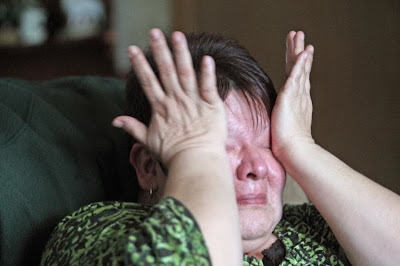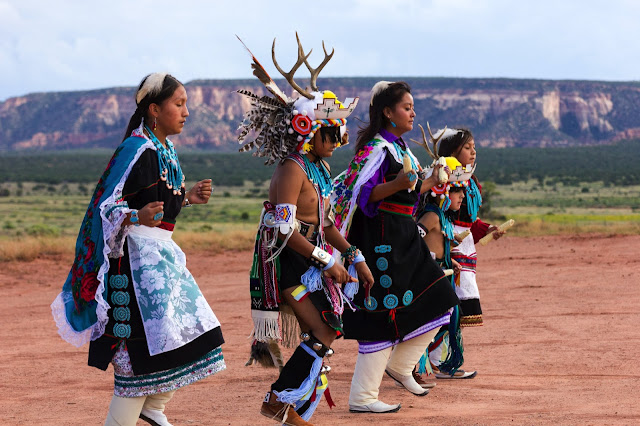“He was my only son”: Fort Peck Mother Calls for Congressional Inquiry
This article appeared in Indian Country Media Network in 2013. For more on topics like this, see my book, American Apartheid: The Native American Struggle....
The Montana Supreme Court has dismissed the wrongful-death lawsuit that Fort Peck tribal councilwoman Roxanne Gourneau filed against her local school board after her teenage son’s suicide in 2010. Gourneau, shown right, talked to ICTMN about her journey of the last three years and why she thinks Congress needs to scrutinize the schools her son attended in Wolf Point, a white-dominated town within the Fort Peck Indian Reservation, in northeastern Montana. She and her son paid a terrible price for the school district’s long-term dysfunction, she said.
On November 23, 2010, Dalton Gourneau, shown below, was a 17-year-old high school senior at Wolf Point High School. Just hours before he took his own life, the well-liked teen was kicked off the wrestling team, allegedly for possessing chewing tobacco. At the time, Dalton’s mother recalled, he felt he had a good shot at a state wrestling championship. Participating in an upcoming tournament meant the world to him.
After Dalton learned he’d lost his place on the team, he went to several school officials to plead his case, she said. When that proved unsuccessful, he wandered the school hallways for a while, walked home and shot himself.
A lower court hearing the wrongful-death suit found in favor of the school board in February 2013. Roxanne Gourneau, who has served as a tribal court judge, appealed to the state’s supreme court, which agreed with the lower court in October, ruling that school officials could not have foreseen the suicide and had no special custodial relationship with Dalton that made them liable for his death.
“To this day, they refuse any responsibility for what happened,” said Gourneau, who also has a daughter. “I can’t get it through my head. A dog would give its life to save a child. Where is their human decency?”
The Wolf Point School District has long been regarded as troubled. Gourneau’s assertions about it in the Q&A below—excessive discipline, Indian parents’ difficulties when interacting with the mostly non-Native faculty and administration, poor educational results and more—were echoed in interviews with additional tribal members, in a scathing 2003 investigative report and in another shocking research study in 2013.
The investigators in 2003 were journalist Christina Rose and Delores Huff, a California State University professor and Indian-education expert. The two visited the Wolf Point schools at the invitation of Fort Peck parents. Huff, who is Cherokee and a former school principal, described herself as “rip-roaring furious” at what she observed, including substandard teaching and no support for Native culture. “There was no expectation whatsoever of excellence,” said Huff.
The report led to U.S. Department of Education oversight. In documents recently obtained by ICTMN, it is clear that it took years of urging by DOE before the school began to record disciplinary referrals of Indian students more accurately and to identify teachers responsible for the most write-ups. Staffers got cultural-awareness and other training and, when necessary, reassignment. Students received various types of support when needed. The reforms appeared to produce some improvement, described by the department in 2008, when it ended the monitoring.
However, in 2013 researcher Melina Healey found the same issues that Rose and Huff had identified. Healey also established connections between the problems at Wolf Point and other reservation schools and the heartbreaking consequences for Native children, including suicide and incarceration. Healey’s paper, “The School-to-Prison Pipeline Tragedy on Montana’s American Indian Reservations,” is highly detailed, with many personal interviews among the statistical and legal analyses.
Wolf Point School District’s dismal 2012–2013 online report card corroborates many of Healey’s findings. Academic scores are generally very low, with the exception of high levels of learning readiness among children entering the system (from preschool and tribally run Head Start). Both students and faculty report low morale. The dropout/expulsion rate is high. Either little actually changed during the years of Education Department monitoring, or the Wolf Point schools reverted to old habits after 2008.
 Just as the end of federal monitoring did not mean Wolf Point’s educational problems were over, the dismissal of the Gourneau lawsuit is not the end of the schools’ legal woes. Fort Peck community members and the American Civil Liberties Union have recently sued, claiming that gerrymandering of school-board voting districts favors non-Indian voters and violates the one-person-one-vote principle. Despite a largely Native population, only one Indian has been elected to the eight-member school board in 15 years, says the lawsuit.
Just as the end of federal monitoring did not mean Wolf Point’s educational problems were over, the dismissal of the Gourneau lawsuit is not the end of the schools’ legal woes. Fort Peck community members and the American Civil Liberties Union have recently sued, claiming that gerrymandering of school-board voting districts favors non-Indian voters and violates the one-person-one-vote principle. Despite a largely Native population, only one Indian has been elected to the eight-member school board in 15 years, says the lawsuit.
According to Huff, this is not an unusual. White residents tend to find ways to control Indian-country school systems, she said. This means they are in charge of hiring at the schools, which are typically major employers in rural areas. Several tribal members said the Wolf Point staff included “dynasties” of farm families that had taught there for generations.
Here’s what Roxanne Gourneau, shown here at her inauguration as a tribal councilwoman, told ICTMN.
Why did you file the lawsuit?
I wanted everyone to see what we’ve endured for more than 50 years. Our children’s dreams have been killed in the schools, and we have been powerless to defend them. Promising students and talented athletes are bullied by teachers who do not understand them or the life they come from.
Have cultural-awareness and other types of training for Wolf Point staff led to improvements?
Some things are gone, such as the locked, padded room—the Room of Tears—in which students were isolated as a punishment. But I don’t know if hearing about round dancing and beadwork means anything to the white farmers and farmers’ wives who make up almost the entire teaching and administrative staff. They still don’t understand or care about the dynamics of the Indian students and the conditions they live in.
How do the children feel?
Our children feel threatened, inferior. As a tribe, we mandate that children stay in school until they graduate or turn 18. However, it’s so hard to insist they stay in schools that take every opportunity to crush them. Our children are held hostage. We’re in a situation of rolling trauma. It will take generations to fix this.
What about the parents?
When parents visit the school, they are treated like dirt, so they become discouraged. Some are resigned to thinking that at least their children get breakfast and lunch at school. They’ve given up hope that they’ll develop proficiency in any subject matter. They say, “at least they can eat.” You can see that, in relation to the schools, some of us haven’t graduated from the first tier of psychologist Abraham Maslow’s hierarchy of needs—food, water and other basics of survival.
After Dalton’s death, did the school reach out to you?
Nothing, not even a letter. If they had called me or any of his emergency contacts, Dalton would be alive today. In court, they twisted the beauty of my son so they would win. They said he had write-ups, but most Indian students do. That wasn’t who Dalton was. No one else in his family or community had such issues with him. This has all been very difficult for me, so emotionally draining. I grieve deeply. He was my only son.
You say you want a Congressional investigation. Anything else?
I want our schools to be tribally controlled so our kids can aspire to real skills and a better life. Our council has just formed an education committee, to make this a priority for the youth of today. We have educated people, college graduates, who can handle this. We are standing up for our children. We don’t want any more of them to inherit the pain. The Wolf Point schools make a conscious choice not to educate our children. The low academic scores, the extreme punishments, the disregard for the Indian community and culture have always been in plain view. None of this has ever been secret. I ask you, should this exist in the 21st century?
My son and I paid the ultimate price for this situation. And they got away with it. Or did they?
Text c. Stephanie Woodard. This article was written with support from the George Polk Center for Investigative Reporting. Photographs courtesy Roxanne Gourneau.



